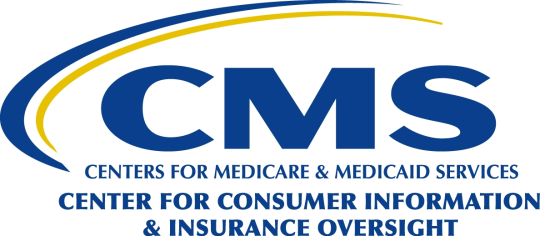Emergency Justification
CM-10535_IFR Emergency Justification (8-19-14).docx
Employer Notification Request to HHS of its Objection to Providing Contraceptive Services (CMS-10535)
Emergency Justification
OMB: 0938-1248
D epartment
of Health & Human Services
epartment
of Health & Human Services
Centers for Medicare & Medicaid Services
Center for Consumer Information and Insurance Oversight
200 Independence Avenue SW
Washington, DC 20201

TO: Howard Shelanski
Administrator, OIRA
FROM: Marilyn Tavenner
Administrator
SUBJECT: Request for Emergency Clearance of the Information Collection Request for Employer Notification to HHS of its Objection to Providing Contraceptive Services
Emergency Justification
The Centers for Medicare & Medicaid Services (CMS) is requesting that an information collection request (ICR) to approve a model form for employers to notify the Department of Health and Human Services that it has a religious objection to providing contraceptive services be reviewed and approved under the emergency clearance process. In accordance with the Paperwork Reduction Act of 1995 (PRA), specifically 5 CFR 1320.13(a)(2)(i), public harm is reasonably likely to occur if the normal, non-emergency clearance procedures are followed.
On July 2, 2013, the Department of Health and Human Service, Department of Treasury (Internal Revenue Service), and the Department of Labor published final rules that establish accommodations for contraceptive coverage for health coverage established or maintained by eligible organizations with religious objections to contraceptive services. The final rules require each eligible organization to self-certify that it meets the definition of an eligible organization.
The final rules provide that EBSA Form 700 is used by eligible organizations for their self-certification. The self-certification must be executed by an authorized representative of the organization. It is not submitted to CMS or to the other federal agencies; however, the eligible organization must maintain the self-certification in its records for each plan year to which the accommodation applies and provide a copy of its self-certification to the plan’s health insurance issuer (for insured plans) or third party administrator (for self-insured plans). The EBSA Form 700 is a collection of information subject to the Paperwork Reduction Act (OMB Control Number 1210-0150), which currently is scheduled to expire on August 31, 2016.
On July 3, 2014, the Supreme Court of the United States issued an interim order in connection with an application for an injunction in the pending case of Wheaton College v. Burwell (the “Wheaton order”). The Court ruled that that Wheaton College need not use EBSA Form 700 or send a copy of the executed form to its health insurance issuers or third party administrators to meet the condition for the injunctive relief if it informs the Secretary of Health and Human Services in writing that it is a non-profit organization that holds itself out as religious and has religious objections to providing coverage for contraceptive services.
Currently, the Departments are drafting interim final regulations that will continue to allow eligible organizations to notify an issuer or third party administrator using EBSA Form 700. In addition, the interim final regulations permit an alternative process consistent with the Wheaton order under which an eligible organization would notify the Secretary of HHS that they it will not act as the plan administrator or claims administrator with respect to, or contribute to the funding of, coverage of all or a subset of contraceptive services. A new model notice for the alternative process is also being submitted for review and approval. Therefore, the interim final regulations will revise the EBSA Form 700 information collection request (ICR).
In order to implement the Supreme Court's order and make an alternative process for eligible organizations available on a timely basis, regulations must be published as soon as possible. The use of normal Paperwork Reduction Act clearance procedures would delay implementation of the Wheaton order and the ability of eligible organizations to avail themselves of the alternative process.
CMS POC
Usree Bandyopadhyay
Phone: 410-786-6650
INFORMATION NOT RELEASABLE TO THE PUBLIC UNLESS AUTHORIZED BY LAW: This information has not been publicly disclosed and may be privileged and confidential. It is for internal government use only and must not be disseminated, distributed, or copied to persons not authorized to receive the information. Unauthorized disclosure may result in prosecution to the full extent of the law.
| File Type | application/vnd.openxmlformats-officedocument.wordprocessingml.document |
| Author | RACHEL CLEMENT |
| File Modified | 0000-00-00 |
| File Created | 2021-01-26 |
© 2026 OMB.report | Privacy Policy